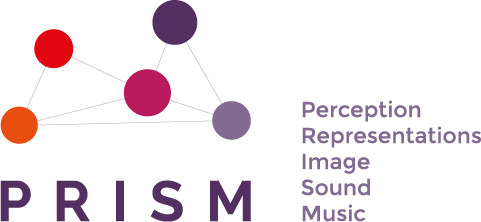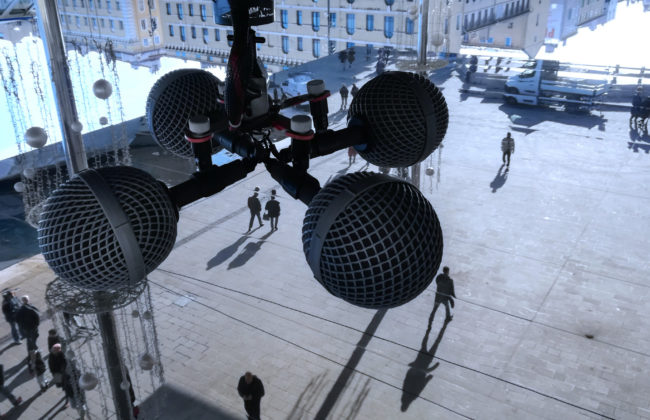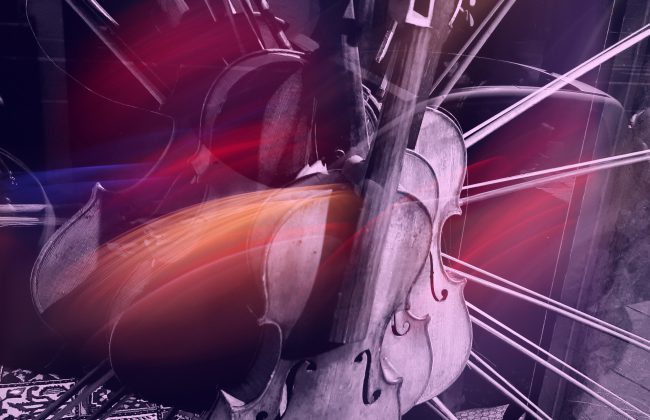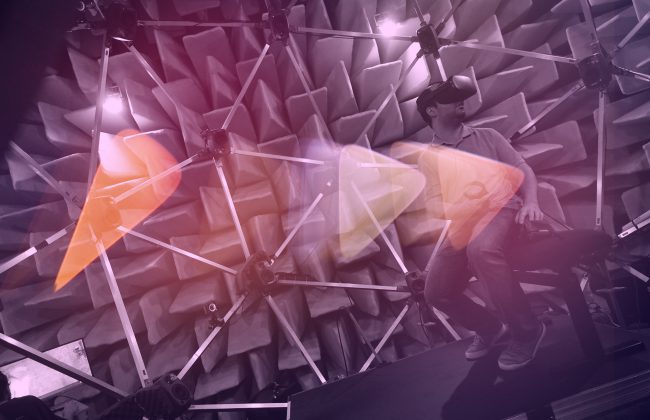The axis is mainly composed of researchers in Music and Musicology, Cinema, Visual Arts and Contemporary Performance.
The axis favours the use of qualitative and experimental methodologies to analyse artistic creations, explorations and practices. The approach is conceived in a fundamental and applied way and is thought out between researchers, artists, professionals and/or citizens. They develop a methodology situated at the heart of field practice, according to an ethical commitment to encounter and otherness.
The aim is also to develop epistemological research on research and creation practices, collaborative and/or inclusive practices, as well as a critical and interdisciplinary space where the sciences of the text (semiotics and semantics), the critical sciences (aesthetics, rhetoric, hermeneutics and philosophy), the sciences of man and society (history, sociology, anthropology) as well as the experimental sciences (acoustics, psychoacoustics, cognitive psychology) interact.
Axis 2 has been meeting twice a month since 2019. In addition to the research seminars, there are organisational meetings. The axis operates on a collegial basis, with all members participating in the decisions and strategic orientations of the axis’ scientific and functional development (budget, financial support, etc.)
Issues and associated questions
The main problematic raised by the research conducted is to understand the way in which creative processes, practices and artistic explorations are organised and thought out in contemporary social, technological and aesthetic situations and contexts. The aim is to question artistic forms and their modes of representation in the major categories of artistic creation (visual arts, performing arts and live arts, music and sound creation, cinema and audiovisual, video games, new media and digital creation) and to contextualise these questions within the anthropological situations and technical and aesthetic interactions of image-sound-music that participate in their dissemination and reception. In a broader sense, the axis questions the “new” in the arts, whether it is explored as innovation, invention or re-actualisation.
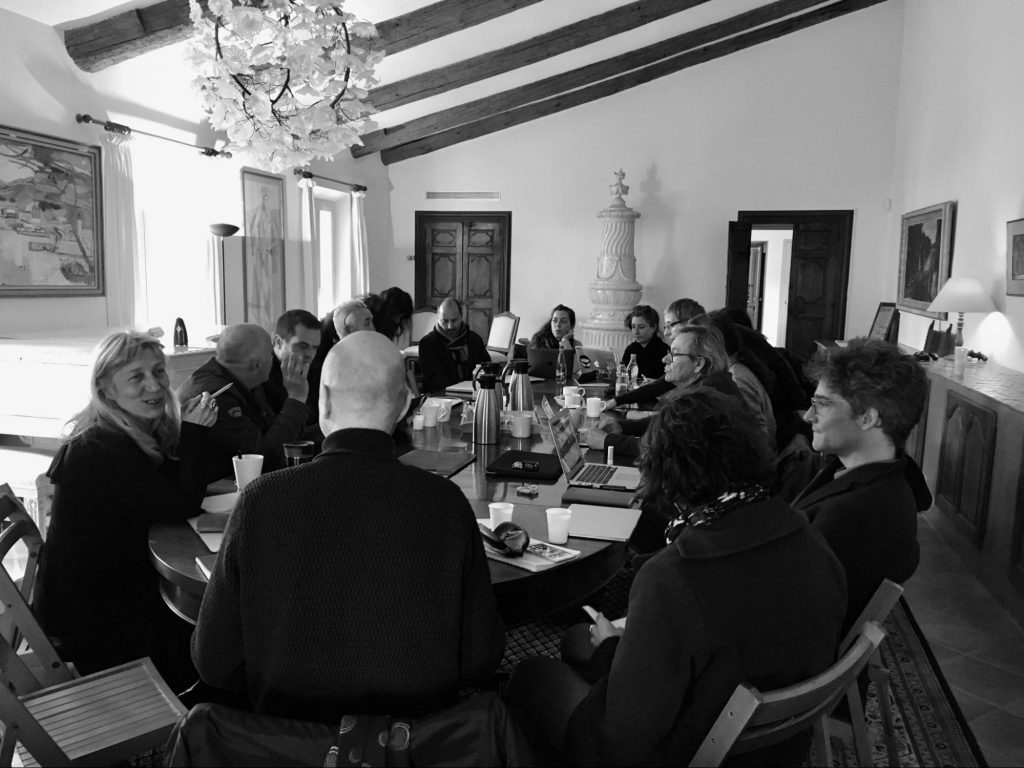
Research fields
3 main research fields guide the reflections and actions conducted within the axis. They are broken down into several collective and interdisciplinary projects carried out by the members of axis 2 (individually and/or collectively) and in interaction with the other PRISM axes or with other laboratories.
1. Research, creation and action
In the same way that the unity of the sciences has been questioned since the beginning of the 21st century, the “Research Practices” project wishes to question research practices in the Arts and Sciences. The aim is to re-examine the dichotomy between doing and knowing, theory and practice, research and creation. The “Research Practices” project hypothesizes that research is present within artistic practices as creation is within research practices. Indeed, if research in Arts and Sciences exist separately, the project proposes to evaluate their degree of proximity or, on the contrary, of distance – notably in situations where scientists and artists cross their practices in the same place, or where these practices cross “in the same person”. The challenge of the project is to experiment, observe and document these multiple practices.
As Pascal Nicolas-LeStrat (2017) suggests, it is a question of thinking about research based on experimentation and shared experience, on putting people in situations and confronting their knowledge and practices. The observation of practices allows us to rethink, for example, the place of experimentation in scientific and artistic practices. Is it that of the draft, the sketch, the error, the erasure? Is it the place of fiction, of interpretation, of the porosity between ‘object’ and ‘subject’? That of the constitution of laws, the setting up of an experimental protocol, the dialogue between experimenter and experimented (subject of the experiment)? Or the reproducibility of experiments and protocols?
> Internal seminars. Camargo/Cassis Foundation: 3/05/2019 & 3/07/2019
> Study day “Collaborative methods in research and creation”: 17 December 2020 Read more.
> 2 online meetings dedicated to this project took place during the containment period
> Resumption of the project: seminars on 4/11/2021, 2/12/2021.
2. Arts, Science and Technology
This field of research favours the study of interactions between the processes of creation and/or interpretation and science and technology. These interactions produce new tools and methods of analysis and question the place of art as invention.
Associated projects
- Antiscope
- IESM
- Transcomp
- IA+CA
3. Arts, Sciences and Societies
Since 2020, this field of research, which is being developed in several projects, is approached from the question of the links between the archive and creation (which involve – among other things – a reflection on the processes of patrimonialisation). Indeed, researchers, artists and audiences construct, use and employ data present on web platforms or resulting from their own creative process. These productions and re-uses question the public and private uses of the archive, whether they are academic, institutional, citizen or artistic. Based on these observations, this theme questions the “lives” of the archive, which are nowadays declined in processes of archaeology (Russel, 2018). It is a question of questioning the new uses and new research around these living archives, one of whose particularities is that they undo the asymmetrical logic of the institutional management of the archive. What new research and creation practices are involved in these new uses? What are the links between the institution and these new archiving structures? How can we question our relationship with the past? How can we ‘revive’ it, rewrite it or recreate it? This reflection, while following the work of Foucault (1969), Derrida (1991) and Farge (1997), is based on the participatory practices induced by these new uses and considers them as new citizen modalities to question the links between history and memory. This research theme is closely linked with the MMSH-AMU (UAR 3125) and the SoMuM Institute.
Associated projects
- IMAPI
- [CO S-A]
- Misraki Archives
- Living Archives
- Dialoguing with archives: Television and the shock of AIDS (working title)
- FIFAS
Expected outcomes
> To study the meaning and problems of contemporary artistic and scientific practices, particularly in their collaborative, inclusive and interdisciplinary orientations.
> To develop a new understanding (fundamental and applied) of the world by valuing art and its multiple practices (creations, explorations, improvisations, reuses, interpretations) as territories where the emergence of a new (invention, innovation, renovation) is played out, possibly transposable to other situations and contexts.
> To analyse creative processes as privileged territories to observe social transformations. The methodological approach used postulates that the emergence of knowledge and the constitution of knowledge are based on the recognition of the transaction between the researcher and the social actor, i.e. the fact that the production of knowledge takes place “in and through action”, between researchers and actors in the field.
In applied research, the axis (and its members) carry out – apart from consultancy, expertise and/or device design activities – a certain number of productions, notably audiovisual, on the activities of research through practice and/or scientific research.
In basic research, the axis (and its members) favour – apart from the usual media (study days, workshops, colloquia, etc.) – the valorisation of results through new collaborative dissemination platforms, the popularisation of research towards the general public as well as the organisation of research-creation-action-participation residencies.
Headed by
Permanent members
- Rosine Bénard O’Kelly
- Pascal Cesaro
- Natacha Cyrulnik
- Frédérique Devaux-Amarger
- Javier Elipe Gimeno
- Christine Esclapez
- Julien Ferrando
- Ivan Magrin-Chagnolleau
- Charles de Paiva Santana
- Jacques Sapiega
- Joséphine Simonnot
- Isabelle Singer
- Vincent Tiffon
Associated researchers
- Jonathan Bell
- Elena Biserna
- Baptistine Marcel
- Jean-Pierre Moreau
- Whalid Ghardi
